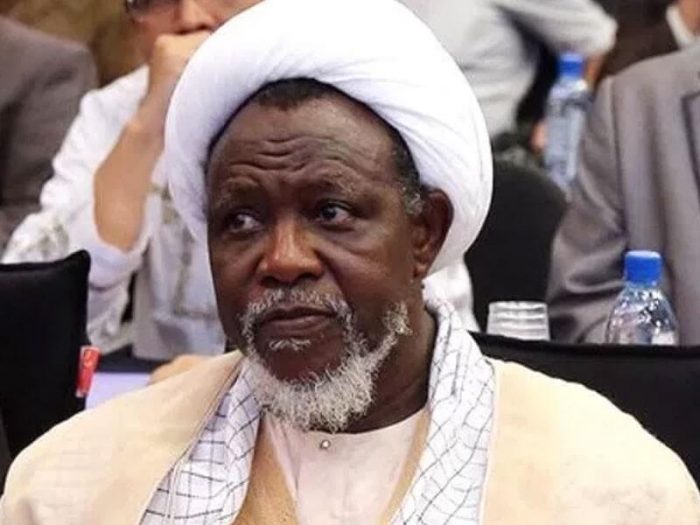Sheikh Ibraheem El-Zakzaky, the leader of the Islamic Movement of Nigeria (IMN), has united with fellow Nigerians in urging President Bola Ahmed Tinubu to reconsider his stance on potential military action against the Niger junta.
Under the guidance of Tinubu, the Economic Community of West African States (ECOWAS) had presented the junta with a seven-day ultimatum to reinstate President Mohammed Bazoum or face a range of sanctions, including the possibility of military intervention.
During a recent interaction with a group of Qur’an reciters at his Abuja residence, El-Zakzaky emphasized the depth of the connection between Nigeria and Niger Republic. He highlighted that their relationship extended beyond mere geographical proximity and had evolved into a profound brotherhood.
ALSO READ: Senate Defers Confirmation Of El-Rufai, Danladi, Okotete, Passes Other Ministerial Nominees
El-Zakzaky articulated, “The historical ties between Nigeria and Niger transcend mere neighborly relations; they are built on the foundation of brotherhood. We must reflect on the profound fraternal bonds that have linked us to both the state and people of Niger.”
He expounded further, “Consider the history of Borno territory, which was once divided into four parts – Nigeria, Cameroon, Chad, and Niger. These divisions underscore the shared heritage that spans these territories. From the empire of Shehu Usman up to the city of Sokoto, a symphony of divisions and annexations took place. Such divisions can be seen in territories like Hadejia, Gumel, and Kazaure, which straddle the borders between Nigeria and Niger.”
El-Zakzaky continued, “This history has repeated itself in towns like Daura and Katsina, where segments were demarcated between Niger and Nigeria. Even the Gobir Empire experienced such partitioning. The town of Marata, the birthplace of Shehu Usman Danfodio, stands within Niger.”
Drawing attention to the shared cultural heritage, he remarked, “The cultural bonds uniting Niger and Nigeria are stronger than one might realize. We are siblings, sharing common roots and values. This should not be overlooked.”
He asserted, “They are our kin, particularly since the homeland of our founding father lies within their borders. The notion of a conflict between us is inconceivable. It is disheartening that certain interests would manipulate our countries to perpetrate fratricidal violence. I find it disturbing that some seek to employ our nation to wage war against our brethren. This is an affront to humanity.”
Addressing claims of impending Nigerian aggression, El-Zakzaky countered, “I have heard that some Nigeriens believe that Nigeria will launch an attack. Let me dismiss this misconception. Even if such threats were credible – God forbid such a scenario – it would not be Nigerians initiating the attack. Rather, it would be instigated by external forces collaborating with the president, but not by the Nigerian people. We are not party to this endeavor, nor do we support it. We cannot and will not engage in fratricide.”
Concluding with a historical analogy, he stated, “We have witnessed such manipulation before. Following the Islamic Revolution in Iran, Saddam Hussein was used to invade Iran. This war spanned eight years, despite the shared culture and heritage of the Iranian and Iraqi people. Even today, senior positions in Iran are occupied by Iraqis, highlighting their unity. Just as the Iranian-Iraqi connection remained resilient, we too must resist division and maintain our brotherly ties.”
In essence, Sheikh Ibraheem El-Zakzaky underscored the significance of brotherhood between Nigeria and Niger Republic, urging for restraint and unity amidst the political situation at hand.





